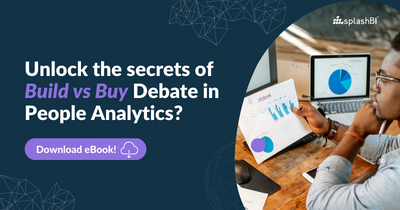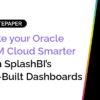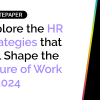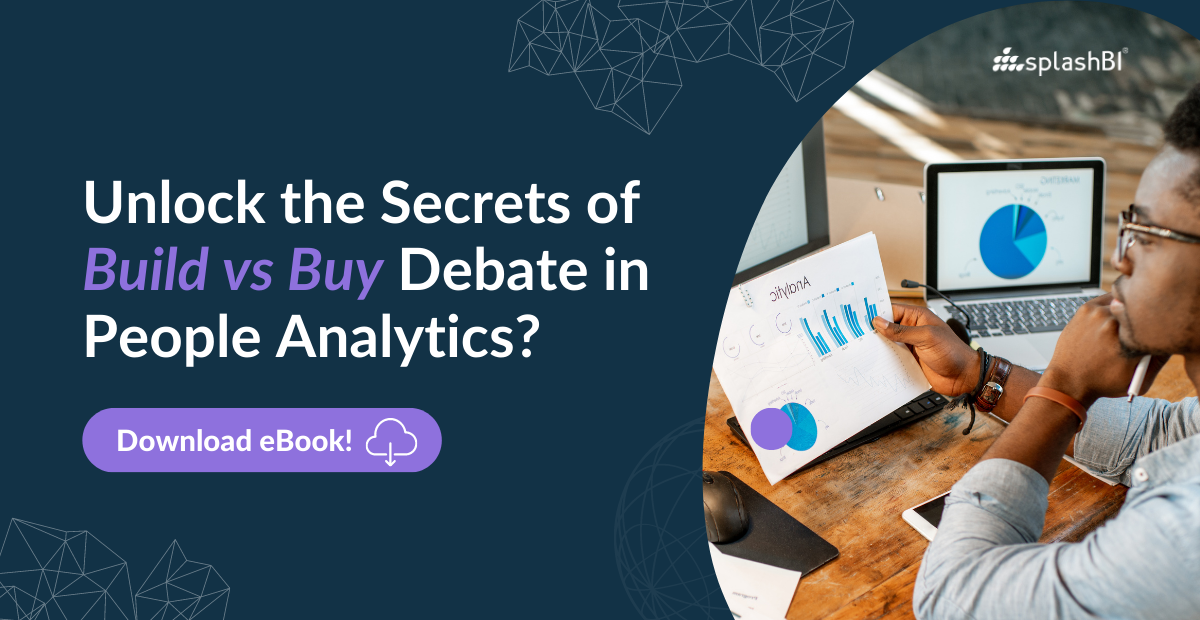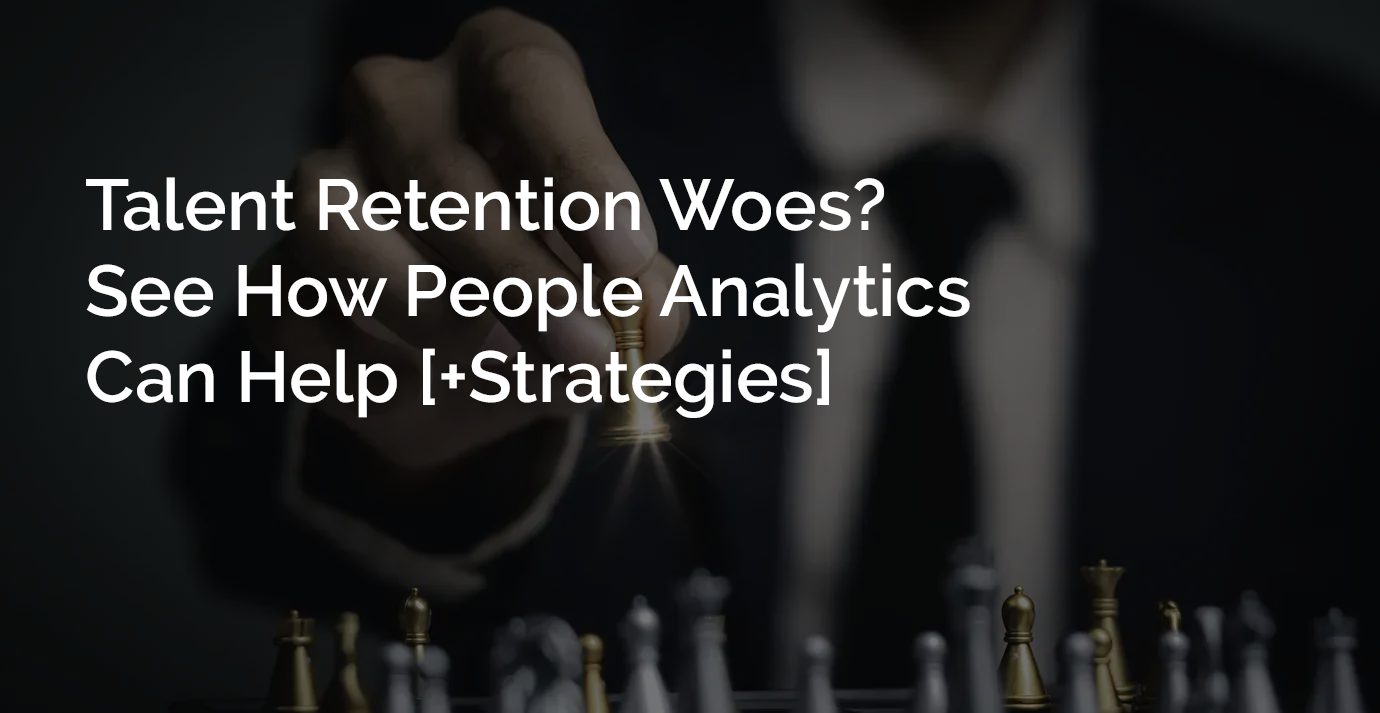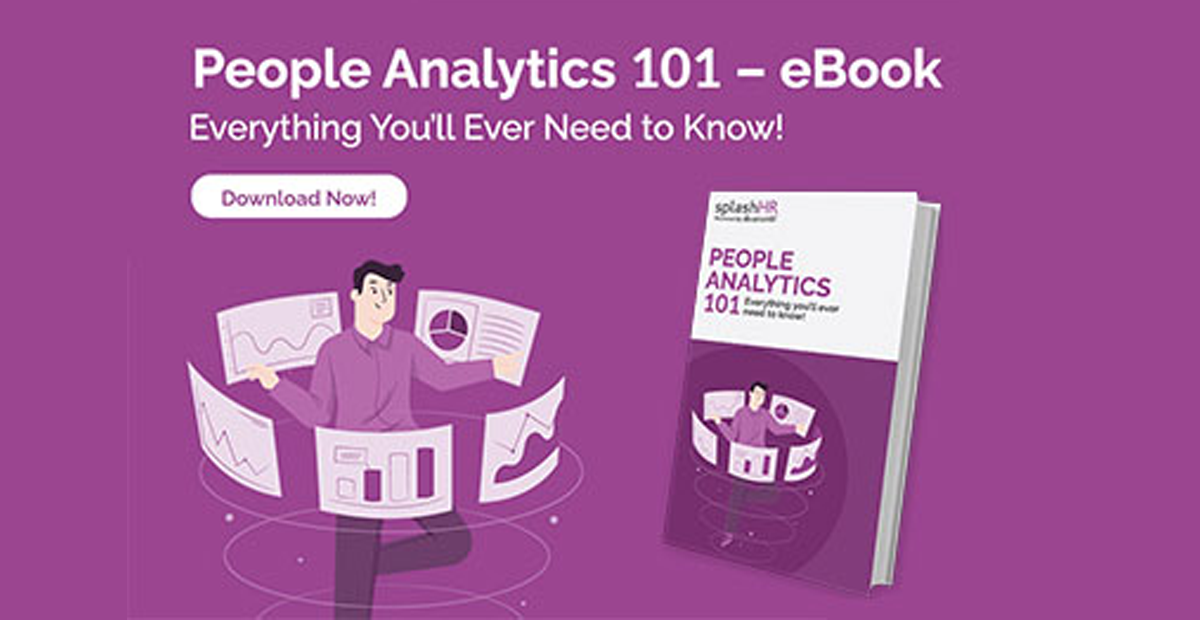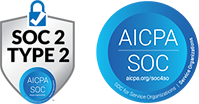Generative AI Applications in HR and People Insights
Explore –
- Why HR Teams Can’t Afford to Ignore the Generative AI Potential?
- Generative AI for HR and People Insights: Crucial Impact Areas
- Generative AI for HR and People Insights: Why ChatGPT Isn’t Enough
- Challenges and Ethical Considerations: Generative AI Tools for HR and People Insights
- Charting the Future of Work with Generative AI-Powered People
Generative AI Applications in HR and People Insights: A 101
HR’s role within organizations is changing rapidly, driven by new employee expectations, changing work models, and more. To deliver on their recent success factors, HR teams need real-time people insights at their fingertips. AI, specifically generative AI, can empower HR functions to meet and exceed their new-age performance indicators. This blog deep dives into how the generative AI opportunity in people insights and HR is changing the game.
Why HR Teams Can’t Afford to Ignore the Generative AI Potential?
There’s a growing need for higher impact, greater efficiency, and innovative ways of working due to rising expectations from HR teams. Generative AI can enable HR teams to unlock the power of real-time people insights. Ultimately, this will empower them to identify and act on trends that promise to impact the workforce.
This level of insights and automation frees up HR professionals’ time and allows them to focus on more strategic initiatives and deliver higher value to the workplace and workforce. Generative AI is proving to be a crucial asset for HR to evolve, ensuring their seamless journey toward meeting the contemporary demands placed on them.
Let’s dive into the benefits, opportunities, and challenges of implementing generative AI in HR functions.
Generative AI for HR and People Insights: Crucial Impact Areas
Generative AI’s impact on HR extends across several areas. Firstly, it empowers HR professionals with the capability to perform data analysis and derive people insights independently without having to rely on data engineers.
Gartner reports that AI’s impact on the HR function will be apparent throughout the employee lifecycle. This includes HR operations and service delivery, recruiting, learning and development, and talent management.
Secondly, with employee engagement, employer branding, L&D, and internal communication becoming essential parts of the larger HR portfolios across many workplaces, generative AI will be a game-changer in content creation for HR interventions. Whether creating personalized surveys for employee feedback, sharing new culture and policy updates, or crafting engaging onboarding and training materials, generative AI will help streamline HR content generation.
Let’s now dive into the specific Generative AI use cases for HR and people insights.
A. Tangible Benefits of Generative AI Applications in HR and People Insights
By automating tasks and delivering real-time people insights, generative AI frees HR professionals to focus on more critical initiatives, such as building solid company cultures, crafting effective DEI initiatives, and developing a high-performing workforce. Below listed is how AI has revolutionized various facets of HR operations:
B. The Generative AI Opportunity in Talent Acquisition
A report by Forbes reported that nearly 55% of companies have already invested in recruitment automation to enhance efficiency and enable data-driven judgments. Generative AI can also be used to create insight-led, compelling job descriptions. It can further help streamline resume screening and candidate matching. Generative AI for HR can help identify candidates for open positions based on their skills, experience, and cultural fit.
The integration of generative AI in talent acquisition not only accelerates the hiring process but also ensures that the chosen candidates are better aligned with an organization’s values and requirements. Ultimately, this fosters a more productive and harmonious workforce.
C. Generative AI for Employee Sentiment Analysis, Employee Engagement, and Employee Retention
Employee feedback is a goldmine of insights for HR interventions in significant policy and culture matters. AI-powered sentiment analysis allows HR teams to analyze vast feedback sources for actionable insights. Generative AI specifically can uncover trends, concerns, and areas for improvement in real-time, enabling proactive HR interventions and improved employee engagement.
SHRM reports Jed Macosko, a Physics professor at Wake Forest University and the president of AcademicInfluence.com. He believes that generative AI empowers HR professionals to “glean operationally defined variables and conclusions from HR datasets that might be less intuitive to human analysts.”
One of the standout advantages of AI in the context of employee sentiment insights is its ability to provide continuous, real-time feedback. This means that HR and team leaders can act on insights in near-real time, ensuring improved employee engagement and satisfaction.
In the race for talent, employee retention is an area where HR functions are the most challenged and have the most significant opportunity to make an impact. Generative AI-driven people insights are emerging as a powerful tool to enhance employee engagement and predict and mitigate attrition effectively.
Once potential flight risks are identified, Generative AI can recommend tailored retention strategies. These strategies can include personalized career development plans, additional training opportunities, or adjustments in work-life balance. These measures are not only more likely to resonate with employees but are also more likely to be effective, as they are based on individual needs and motivations.
D. Performance Management and Augmentation: How Generative AI Can Help
Performance management is undergoing a profound transformation with the integration of Generative AI. Traditional methods, often reliant on annual or semi-annual reviews, are complemented by AI-driven tools offering continuous assessment and development opportunities. KPMG reveals that 80% of companies invest in technologies and AI to understand performance through calculated work deliverables, relevant skills learned, and bonuses computation.
Generative AI-powered real-time people insights into real-world employee performance. Managers can access insights conversationally, understanding employees’ strengths and areas for improvement as they happen, allowing for timely interventions and guidance.
Generative AI’s contribution extends beyond assessment. It empowers personalized development by analyzing an employee’s performance data and building and recommending customized learning content. This opens the door to actual impact on performance, based on reality.
E. Skills Development & Career Pathing: How Generative AI-Based People Insights Can Help
It’s not news that employees demand that their workplaces offer skill development opportunities to shape their career paths. AI is both a cause and solution for this demand.
First, more and more employees today are concerned about being replaced. SHRM reports that 52% believe they are easily replaceable, and 41% fear losing their jobs. Skill development has never been more important for HR functions.
At the same time, every employee wants to be rewarded with meaningful benefits like promotions and pay hikes. Their career paths must be structured, and employees must understand what resources and skills they will get to the next level.
AI can assist in both needs.
Generative AI is reshaping the landscape of skills development and career progression by delivering tailor-made growth pathways and real-time learning resources. Organizations embracing the technology for skills development will see a substantial uptick in employee productivity. This impact stems from generative AI-powered people insights’ ability to pinpoint skill gaps within the workforce and suggest relevant courses or training materials accordingly.
What sets generative AI apart in this realm is its agility. It can adapt to the ever-evolving demands of the job market. By analyzing real-time industry trends and individual employee performance and skill sets, organizations can ensure that employees remain relevant in the job market in the long term. They can craft career paths that are not just relevant to business needs but also industry trends, future job roles, and individual employee strengths. The result is a win-win scenario where employees feel more equipped for career growth, and companies are better prepared to meet business and workforce needs.
Generative AI for HR and People Insights: Why ChatGPT Isn’t Enough
According to Forbes, 79% of organizations already use automation and AI in recruitment and hiring. ChatGPT, one of Generative AI’s most popular implementations, exemplifies further democratization of AI. More and more employees, including HR professionals, are interacting with natural language interfaces, making data analysis, interpretation, and insights more intuitive and user-friendly.
ChatGPT, specifically, and Generative AI in general, have disrupted ways of working in unprecedented ways. HR functions are no different. HR professionals are increasingly leaning on AI-powered tools to help them with a variety of tasks, such as recruiting, onboarding, training, and employee engagement. But, there are unique challenges in using open-source AI tools like ChatGPT in the workplace.
First, open-source tools may not be as secure or reliable as commercial AI solutions built for sensitive data privacy and security. Also, open-source AI tools are not custom-built for HR tasks. For example, an open-source AI tool designed to generate text may not be ideal for screening resumes or writing job descriptions.
Despite these challenges, there are several ways that businesses can adopt generative AI for people’s insights into the HR function in a safe, secure, and structured manner. That’s where commercial HR-focused generative AI solutions come into play.
But are all HR-focused people insights and analytics solutions built equal?
Challenges and Ethical Considerations: Generative AI Tools for HR and People Insights
Adopting generative AI in HR undoubtedly offers significant potential, but it also presents challenges and ethical considerations that demand scrutiny. In this context, it’s essential to acknowledge and address these issues to achieve the full benefits of AI while avoiding potential pitfalls.
1. Accuracy Issues
Generative AI systems can sometimes produce inaccurate or fabricated information, a phenomenon known as “hallucination.” Not just AI adopters but even AI builders and leaders, including Google CEO Sundar Pichai, cite concerns about generative AI’s accuracy challenges. In HR specifically, inaccurate insights can lead to misinformed decisions, affecting hiring choices, employee development, and engagement initiatives.
2. Propagating Biases
Bias in AI algorithms is a well-documented challenge. This is especially true when AI models are trained on biased data sets.
Ultimately, these biases can lead to discriminatory practices in hiring, performance evaluations, and promotion decisions. A Forbes article quotes Dr. Dan Harrison, founder and CEO of Harrison Assessments, who explains this in further detail, “When used for screening or hiring decisions, there is increased legal liability, questionable benefits over systems designed for assessment, and greater potential for a negative candidate experience and employee turnover. For example, it could penalize women candidates because they are statistically more likely to leave the workforce to care for their children. Or AI could unintentionally have a bias against older people simply by penalizing people with too much experience.”
A popular e-commerce company’s hiring tool incident exemplifies the challenge of bias in AI tools, where biased data resulted in gender-based discrimination.
3. Human Empathy and Intelligence Have No Replacements
While generative AI can assist HR professionals, it should not replace the human touch or critical thinking. HR is a people-oriented function that requires empathy, nuanced judgment, and context awareness, which AI may lack. Human intervention is necessary to interpret AI-generated insights, make ethical decisions, and maintain compassion. After all, HR functions are not just about people’s insights but about people.
The adoption of generative AI in HR comes with both promise and perils. To navigate these challenges and ethical considerations effectively, organizations must prioritize accuracy, actively address bias, fortify AI platforms against vulnerabilities, and ensure that AI enhances rather than replaces human judgment and empathy. By taking a cautious and thoughtful approach to AI adoption, HR professionals can harness the advantages of AI while safeguarding against potential risks and pitfalls.
HR functions, employers, and employees deserve watertight generative AI systems for people insights and analytics.
Charting the Future of Work with Generative AI-Powered People Insights
As we look ahead, sophisticated HR analytics and people insights tools will get more effective with generative AI. Collectively, these tools will empower HR teams with advanced, real-time people insights and visualizations to make better, more timely decisions, equipping them to impact their organizations positively.
Unlock the power of People Intelligence with SplashHR – Curate data-driven decisions for improved business outcomes. Request a Demo today!
About the Author

Brianne Minnich,
HCM Solutions Director
Brianne Minnich, with 8 years of global HR experience, developed a keen interest in the data driving operations, particularly around Talent Intelligence. Recently joining SplashBI as their HCM Solutions Director, Brianne bridges her HR background with her passion for data. Her roles include educating HR professionals, boosting enthusiasm for HR Analytics, and amplifying businesses’ insights into their internal and external people analytics.

